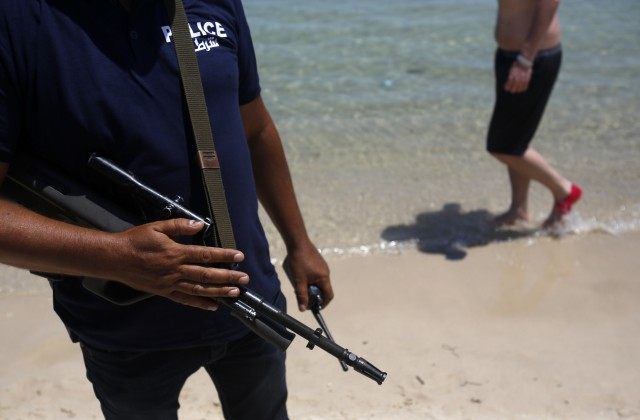The Israeli Counter-Terrorism Bureau (CTB), a wing of the Prime Minister’s National Security Council, was advising Israelis not to travel to Tunisia for months ahead of last week’s beach massacre.
Questions are now being asked why the British Foreign Office did not issue similar warnings and why, in the wake of Friday’s killings, it still will not advise against travel to much of the country.
Named by Israel’s semi-annual travel advisory as a country that could see additional attacks following the Islamist raid at the Bardo Museum in Tunis in March, the CTB strengthened the advice in May. Defense News reported in March that Tunisia had been designated “Code Red, or high concrete threat” and “any Israelis present in [Tunisia] are advised to leave immediately.” It came as part of a wider warning which read:
“Recent terrorist attacks by Islamic extremists in Belgium, Canada, Australia, France and Denmark raise concerns over additional attacks against Western targets, including Israeli and Jewish targets, by veterans of the fighting in Syria and Iraq who are affiliated with Global Jihad (including Islamic State) and by local elements inspired by the terrorist organizations.”
In May The Jewish Press reported the Israeli Prime Minister’s Office reissued the Level 2 alert in relation to Tunisia, citing intelligence that terrorist groups were planning attacks against Jewish and Israeli targets. Contradicted at the time by Tunisia’s Interior Ministry the warning stated “the recommendation is to avoid visiting Tunisia.”
The CTB alerts were specific to Israel, linking it to the annual Lag B’Omer pilgrimage to the Tunisian island of Djerba, home of the El Ghriba Synagogue (one of the oldest synagogues in the Arab world). Nevertheless, questions are being asked as to why the elements of the warning involving Western targets did not extend to stronger Foreign Office advice to British travelers.
Even now official advice from British authorities is not as strong as the Israeli advice prior to Friday’s event. Revised travel advice went up on the Foreign Office website on Saturday night. In part it reads:
“Further terrorist attacks in Tunisia, including in tourist resorts, are possible, including by individuals who are unknown to the authorities and whose actions are inspired by terrorist groups via social media. You should be especially vigilant at this time and follow the advice of Tunisian security authorities and your tour operator.”
The travel correspondent at The Independent, Simon Calder, points out that the travel advisory for much of Tunisia, including the sites of both the attack in March and June, is “marked on the map in a reassuring green – for ‘go’.” In rating it so, the Foreign Office rates it similarly to both France and Spain as an area presenting “a high threat of terrorism.” Calder continues:
“…even as someone who will happily return to Tunisia as soon as possible, I cannot accept that Benidorm and the Dordogne share the same risk profile as a poor country that shares a long, leaky border with the failed state of Libya – where a Kalashnikov, like human life, is cheap.”
“Right now, British travellers have heightened sensitivity to risk. So the Foreign Office should introduce a more nuanced system. At present it appears there are four grades of danger, in ascending order: a “a general threat of terrorism,” “a high threat of terrorism,” “we advise against all-but-essential travel,” and “we advise against all travel.” Let’s call them 1, 2, 3 and 4. The last two will trigger an evacuation, which is perhaps why the Foreign Office’s intricately worded current advice seems intended to give Tunisia a 2.9 – stopping just short of sending the rescue planes in.
“Why not formalise a finer calibration? Our two most-popular countries, Spain and France, do not have a history of tourist-related terrorism; Egypt and Turkey do. So if the western European pair score 2, the eastern Mediterranean couple might be graded 2.5.”
It remains to be seen whether the Foreign Office will adopt Calder’s recommendation. If it fails to do so then an alternative could arise as he added “if the Foreign Office won’t compile an index of attacks on tourists, and presenting them in a digestible form, then I might.”

COMMENTS
Please let us know if you're having issues with commenting.